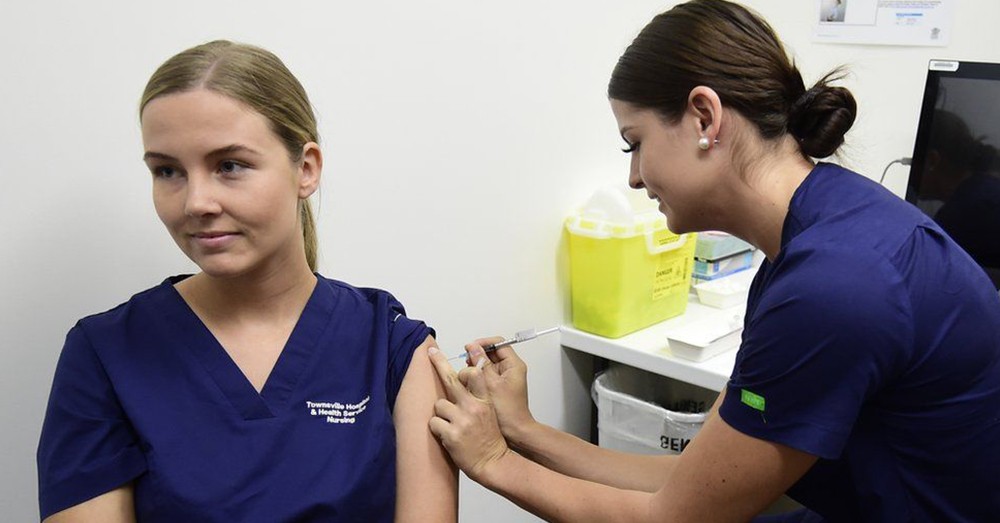Australia's troubled vaccine rollout has hit a potential new stumbling block - rising vaccine hesitancy.
This week a survey suggested about one-third of Australians said they were unlikely to get vaccinated, reportedly up from previous months.
The caution mostly centres around side effects and a lack of urgency given Australia's low infection rates.
But hesitancy threatens to frustrate plans to open its borders, which are slated to remain shut until mid-2022.
The country of nearly 26 million people has managed to stave off major outbreaks through strict border and quarantine controls, and by periodically enforcing snap lockdowns.
Australia is one of the few places in the world where there is no widespread community transmission of Covid.
But it is also one of the slowest in the developed world to immunise its population.
While the pace of the rollout has picked up in recent weeks - reaching daily records - concern about vaccine hesitancy in some pockets of the community has began to increase.
A combination of fear and complacency over the perceived risk posed by the virus has led to hesitancy among some Australians.
The survey by the Sydney Morning Herald (SMH) newspaper and Resolve Strategic found those who had doubts over taking a vaccine were most worried about potential side effects, and did not feel they knew enough about the vaccines.
Australia's rollout was delayed after regulators advised limiting use of the AstraZeneca shot - the country's main vaccine - following cases of rare blood clots linked to the jab.
It now recommends that people aged under 50 get the Pfizer jab instead.
Health Policy Consultant and Adjunct Professor at UNSW Bill Bowtell told radio station 3AW that clearer communication from the government is needed to boost vaccination rates.
"The most important thing we can have as we go forward in this is trust, and trust is only built on the basis of truth," Prof Bowtell said.
"These are all things that ought to be addressed in a much better communications campaign than what we've had from the government."
The AMA has also called for more effective advertising campaigns. The government said it may put more money into information campaigns if needed.
"Advertising plays a role and we're always reviewing that to respond to the needs," Health Minister Greg Hunt said on Wednesday.
"The biggest source of confidence is Australians seeing other Australians have the vaccine.
"That's the single biggest source of confidence that any Australian can have looking at their friends and their family, their mum and their dad, their grandma and their grandpa being vaccinated," Mr Hunt said.
Share This Post















